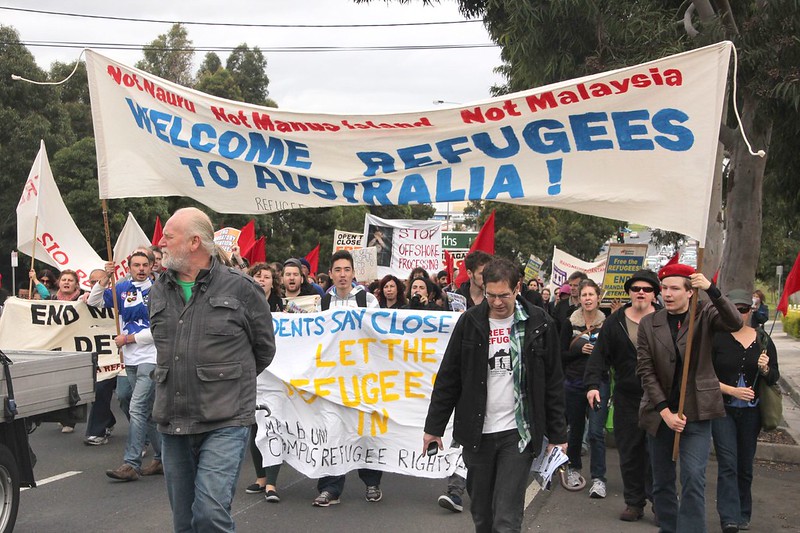2nd September, 2020 marked five years since the death of Syrian refugee Alan Kurdi. Kurdi washed ashore in Bodrum, Turkey, accompanied by his family as they attempted to cross the Aegean Sea on an inflatable boat. Subsequently, the Bodrum court sentenced the traffickers who had provided Kurdi with the boat to 125 years of prison for ‘killing with eventual intent’.
Migration surged during 2015. More than one million refugees fled war and persecution. Many travelled on flimsy vessels to take asylum in Europe. According to Eurostat, Afghanistan, Syria, and Iraq contributed to half of the influx.
While Germany’s Chancellor Merkel welcomed refugees with the slogan “Wirschaffen das! [We can manage it!]” and an open-door policy, many states activated emergency powers and instituted extreme border controls. Austria and Greece declared emergency over the crisis. Hungary fenced parts of its border with razor wires. Turkey closed its borders to Syrian asylum-seekers.
Among the more criticised measures was a military operation called Operation Sophia (EU NAVFOR Med). Sophia was introduced to dismantle the smuggling network off Libya’s coast. Italy, in furtherance of this operation, intercepted thousands of boats and pushed many asylum-seekers back to Libya, where they risked indefinite detention, torture, sexual, and physical violence.
The European Court of Human Rights held that the collective expulsion violated the non-Refoulement obligation. Non-Refoulement is a fundamental component of the prohibition of torture, cruel, and degrading treatment. It is guaranteed under the Palermo Protocol, which regulates the smuggling of migrants. Italy not only has an obligation to rescue asylum-seekers in distress but also to disembark them to a place of safety.
The Common European Asylum System, which is also to blame, necessitates that states follow the Dublin Regulations. According to these regulations, an asylum-seeker can seek asylum in the state where their family lives, or where they possess a visa or residential permit, or in a state where they have first entered the EU as a matter of hierarchy. This strategy over-burdens some states and leaves others untroubled.
According to Eurostat estimates for 2015, while Hungary and Sweden received 174,000 and 154,000 asylum applications respectively, the United Kingdom received only 39,000. Yet after Germany, the UK is one of the leading destinations for asylum-seekers. Chancellor Merkel in a press conference remarked that the Dublin regulations would not work and Europe needs to present a common response to this crisis.
The Dublin regulations are an ideal strategy. They enjoin states to adopt a uniform standard in assessing asylum applications so to ensure consistency. However, the 2015 crisis proved the practical implications disastrous and the fallout is clear.
The EU now plans to do away with the Dublin Regulations and replace it with a new Migration Governance System. The objective of this policy is to rebuild trust and solidarity with the refugees and asylum-seekers after the fallout of 2015.
Yet asylum applications have increased by 11 per cent since the crisis. How should states share that burden? The Global Compact on Refugees points to one answer: it fosters equitable burden- and responsibility-sharing among United Nations member-states in the hopes of bridging the North-South divide.
The Global Compact on Refugees calls for a coordinated approach from both public and private stakeholders. It also invites a consensus of a collective political will. But for the Global Compact to work, the EU also needs to be mindful of its hefty spending to militarise borders and to adopt high-tech surveillance technologies.
The new Migration Governance System establishes a European Union Agency for Asylum that would monitor migration across the EU. It also requires states to institute border procedures for asylum-seekers who might pose a national security threat. The new policy has not been adopted. But the stakes are high for states that need a sustainable solution to fair and equitable burden-sharing.
Note: This article gives the views of the authors, and not the position of the Social Policy Blog, nor of the London School of Economics.




